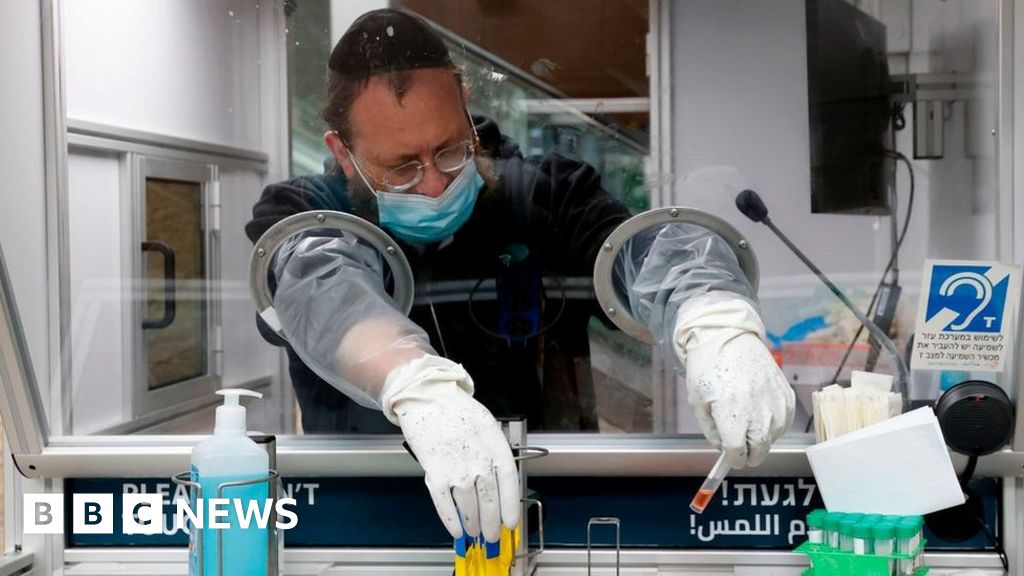-
Please Remember: Members are only permitted to share their own experiences. Members are not qualified to give medical advice. Additionally, everyone manages their health differently. Please be respectful of other people's opinions about their own diabetes management.
-
Learn more about joining the Diabetes UK Support Forum team here: https://forum.diabetes.org.uk/boards/threads/volunteering-opportunities-why-dont-you-join-us.112862/
You are using an out of date browser. It may not display this or other websites correctly.
You should upgrade or use an alternative browser.
You should upgrade or use an alternative browser.
Adam and Eve it
- Thread starter mikeydt1
- Start date
- Status
- Not open for further replies.
trophywench
Well-Known Member
- Relationship to Diabetes
- Type 1
Well - they all have lives outside work.
mikeydt1
Well-Known Member
- Relationship to Diabetes
- Other Type
Bruce Stephens
Well-Known Member
- Relationship to Diabetes
- Type 1
I don't see how Israel (or other countries following the recommended schedule) can tell us anything about what the UK is doing. As far as I understand it nobody expects a single dose to be that effective for the first couple of weeks or so (the expectation is that the immune response matures over that initial period).Jenny just been reading that they now don't think that a single shot without the second isn't offering the protection level they thought. think we may see more about this issue over the next weeks.
What we really want is data on what antibodies, etc., look like after a month or two of a single dose. And the place to look for that is surely the UK (because nobody else is going to have enough people with a single dose unless something goes wrong).
(I've no evidence that anybody's planning on looking, but if they're not then we've really screwed up. We really should have been giving randomly chosen people a second dose at 21 days so they could be compared, but even now we've got some people who've got 2 doses and some who are still waiting, so I really hope some teams will be looking to see what happens.)
mikeydt1
Well-Known Member
- Relationship to Diabetes
- Other Type
got to totally agree with getting data regarding antibodies that is the only way for sure we are even going to know if anything is working with these new vaccines. what is worrying is they were instructed 21 days but now are telling everyone 12 weeks. if the instructions are there they are there for a reason.
Bruce Stephens
Well-Known Member
- Relationship to Diabetes
- Type 1
That's easy: it's 21 days because that's what was in the trials. And that's why Pfizer won't (and can't) recommend anything else.if the instructions are there they are there for a reason.
Why 21 days in the trials? As I understand it you don't want the gap too short because the initial immune response takes a while to happen properly (there's several stages to it) and probably they judged 21 days would be not too short (based on other vaccines). But they wanted to choose a short gap because that gets trial results faster.
I don't get the sense that anyone really thinks that 21 days is optimal. There's the cautious reason for wanting 21 days which is that it's what's been tested so it's known to work, and for those getting vaccinated early giving them something that definitely works reliably has obvious value. (Not sure anyone really thinks that making the gap bigger will break things entirely, but there's some doubt about what the protection from the first dose will be over time.)
Robin
Well-Known Member
- Relationship to Diabetes
- Type 1
- Pronouns
- She/Her
Israeli minister for health has played down the early findings, saying it’s too soon to be able to draw any conclusions. During the first two weeks, people who had he vaccine developed Covid at the same rate as non-vaccinated. During the third week it was 33% less, and after that, the number of vaccinated people catching it was too small to be able to draw any early conclusions.
 I also saw an article a few weeks ago, (can’t remember where now, sorry) that said the improvement after the second dose was seen so quickly, that it was probably due to the continuing development of the first dose.
I also saw an article a few weeks ago, (can’t remember where now, sorry) that said the improvement after the second dose was seen so quickly, that it was probably due to the continuing development of the first dose.

Covid: Israel vaccine fears 'out of context and inaccurate'
Israel is likely to be the first country to see an impact from vaccination - but it is still too early.
www.bbc.co.uk
- Status
- Not open for further replies.
